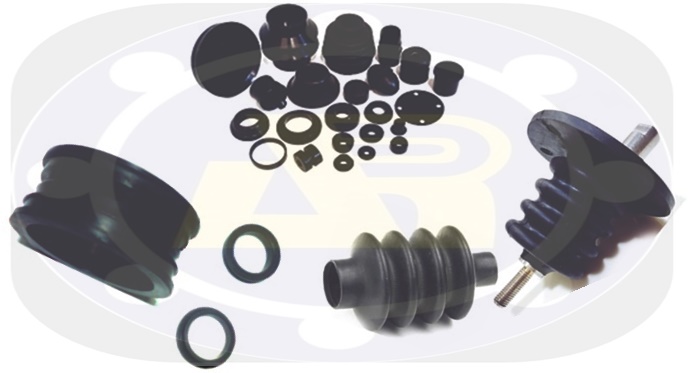
RUBBER BELLOWS

Rubber bellows, also known as expansion joints or compensators, are flexible connectors used to absorb movement, vibration, or misalignment in piping systems. They are commonly used in industrial applications where pipes or ducts are subjected to thermal expansion/contraction, mechanical vibrations, or seismic activities.Rubber bellows find applications in various industries, including HVAC (heating, ventilation, and air conditioning), chemical processing, power generation, petrochemicals, water treatment, and automotive engineering.
Materials
These rubber bellows are used for protection of high precision parts from dust and foreign particles. These bellows are manufactured from various synthetic polymers like Viton (FKM), Acrylonitrile Butadiene Rubber (NBR), Neoprene Chlorobutadiene Rubbers (CR), Natural Rubber (NR) and Ethylene Propylene Diene Rubber (EPDM), etc. depending upon the end use requirements.
——————————————————————————
In addition to their flexibility, Rubber Bellows also provide other benefits, including:
Absorption of vibration: Rubber bellows can effectively dampen vibrations caused by equipment or fluid flow, reducing noise levels and protecting the surrounding components.
Compensation for thermal expansion/contraction: Temperature fluctuations in piping systems can lead to expansion or contraction. Rubber bellows can accommodate these movements, preventing stress or damage to the pipes.
Isolation of equipment: Rubber bellows can isolate equipment such as pumps, compressors, or turbines from the rest of the system, minimizing transmission of vibrations and noise.

